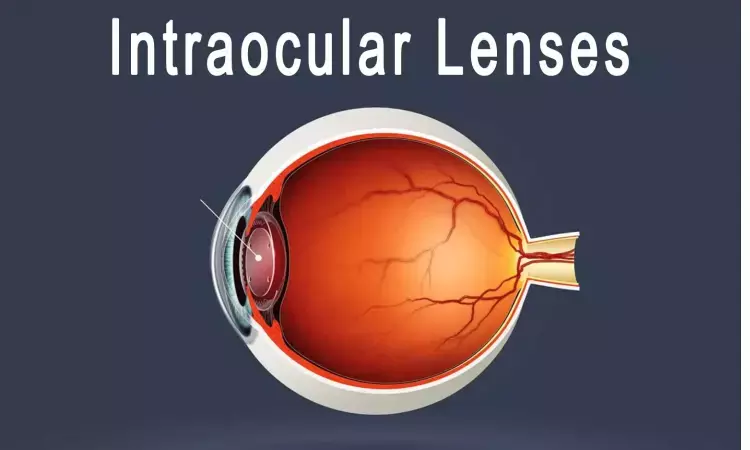- Home
- Medical news & Guidelines
- Anesthesiology
- Cardiology and CTVS
- Critical Care
- Dentistry
- Dermatology
- Diabetes and Endocrinology
- ENT
- Gastroenterology
- Medicine
- Nephrology
- Neurology
- Obstretics-Gynaecology
- Oncology
- Ophthalmology
- Orthopaedics
- Pediatrics-Neonatology
- Psychiatry
- Pulmonology
- Radiology
- Surgery
- Urology
- Laboratory Medicine
- Diet
- Nursing
- Paramedical
- Physiotherapy
- Health news
- Fact Check
- Bone Health Fact Check
- Brain Health Fact Check
- Cancer Related Fact Check
- Child Care Fact Check
- Dental and oral health fact check
- Diabetes and metabolic health fact check
- Diet and Nutrition Fact Check
- Eye and ENT Care Fact Check
- Fitness fact check
- Gut health fact check
- Heart health fact check
- Kidney health fact check
- Medical education fact check
- Men's health fact check
- Respiratory fact check
- Skin and hair care fact check
- Vaccine and Immunization fact check
- Women's health fact check
- AYUSH
- State News
- Andaman and Nicobar Islands
- Andhra Pradesh
- Arunachal Pradesh
- Assam
- Bihar
- Chandigarh
- Chattisgarh
- Dadra and Nagar Haveli
- Daman and Diu
- Delhi
- Goa
- Gujarat
- Haryana
- Himachal Pradesh
- Jammu & Kashmir
- Jharkhand
- Karnataka
- Kerala
- Ladakh
- Lakshadweep
- Madhya Pradesh
- Maharashtra
- Manipur
- Meghalaya
- Mizoram
- Nagaland
- Odisha
- Puducherry
- Punjab
- Rajasthan
- Sikkim
- Tamil Nadu
- Telangana
- Tripura
- Uttar Pradesh
- Uttrakhand
- West Bengal
- Medical Education
- Industry
EDOF intraocular lens effective and acceptable in patients with previous vitrectomy

A recent study explored the satisfaction levels of patients who underwent extended depth-of-focus (EDOF) intraocular lens (IOL) implantation following vitrectomy, shedding light on its efficacy and patient-reported outcomes in a younger demographic. This study was published in the journal Graefe's Archive for Clinical and Experimental Ophthalmology by Willem Hoe and colleagues.
The study involved individuals aged 18 to 75 who had undergone phaco-vitrectomy or phaco after vitrectomy using the AT LARA EDOF IOL. Patients completed a questionnaire evaluating overall visual quality, near vision quality, visual disturbances, based on established survey models like Catquest, NAVQ, and APPLES.
Participant Demographics: Out of 89 respondents (average age 56.7 years), 53.9% received a unilateral EDOF IOL.
Indications for Vitrectomy: Common reasons for vitrectomy included retinal detachments, floaters, and epiretinal membranes.
Satisfaction Scores: The Catquest and NAVQ scores indicated high overall satisfaction, good intermediate vision, and moderate near vision.
Visual Disturbances: The APPLES score suggested acceptable levels of visual disturbances post EDOF IOL implantation.
Comparison Between Groups: No significant differences were observed in satisfaction rates between unilateral and bilateral EDOF IOL groups, except for higher spectacle dependence in the unilateral group (40% vs. 10.6%).
Impact of Floaters: Participants who underwent vitrectomy for floaters reported comparatively lower satisfaction rates.
Effect of Pre-operative Refraction: Pre-operative refraction did not impact satisfaction or visual disturbances significantly.
The study indicates that both unilateral and bilateral AT LARA EDOF IOL implantations post vitrectomy resulted in high satisfaction levels among participants. Despite a slight disparity in spectacle dependence between unilateral and bilateral groups, overall satisfaction remained comparable. This suggests that AT LARA EDOF IOLs could be a viable option for younger individuals undergoing vitrectomy, even for unilateral use.
Reference:
Dr Riya Dave has completed dentistry from Gujarat University in 2022. She is a dentist and accomplished medical and scientific writer known for her commitment to bridging the gap between clinical expertise and accessible healthcare information. She has been actively involved in writing blogs related to health and wellness.
Dr Kamal Kant Kohli-MBBS, DTCD- a chest specialist with more than 30 years of practice and a flair for writing clinical articles, Dr Kamal Kant Kohli joined Medical Dialogues as a Chief Editor of Medical News. Besides writing articles, as an editor, he proofreads and verifies all the medical content published on Medical Dialogues including those coming from journals, studies,medical conferences,guidelines etc. Email: drkohli@medicaldialogues.in. Contact no. 011-43720751


